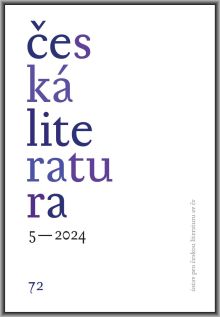„Cigánsky román“ Josefa Sekeru
Děti z hliněné vesnice a problematika
literárneho kontextu
Josef Sekera’s “Gypsy novel” Děti z hliněné vesnice
(Children of the Mud-brick Village) and the issues
surrounding the literary context
Author(s): Miloslav SzabóSubject(s): Local History / Microhistory, Social history, Novel, Slovak Literature, Post-War period (1950 - 1989), Sociology of Literature
Published by: AV ČR - Akademie věd České republiky - Ústav pro českou literaturu
Keywords: exoticism; context; reception; Roma; Slovakia; social history; East Germany
Summary/Abstract: This article reflects on the issue of literary context, particularly on the increasing efforts to reconceptualize it in recent years. Using the example of Josef Sekera’s novel Děti z hliněné vesnice (1952), set among Slovak Roma, it progressively reconstructs the contexts of social history, exoticism and the reception of the work in Communist Czechoslovakia and of its German translation in East Germany. In doing so, it starts out from the assumption that different levels of contextualization can help explain the sujet tensions that Sekera’s novel fails to aesthetically alleviate in any productive way, even though it does to some extent get beyond the schematism of socialist realism.
Journal: Česká literatura
- Issue Year: 72/2024
- Issue No: 5
- Page Range: 535-553
- Page Count: 19
- Language: Slovak

